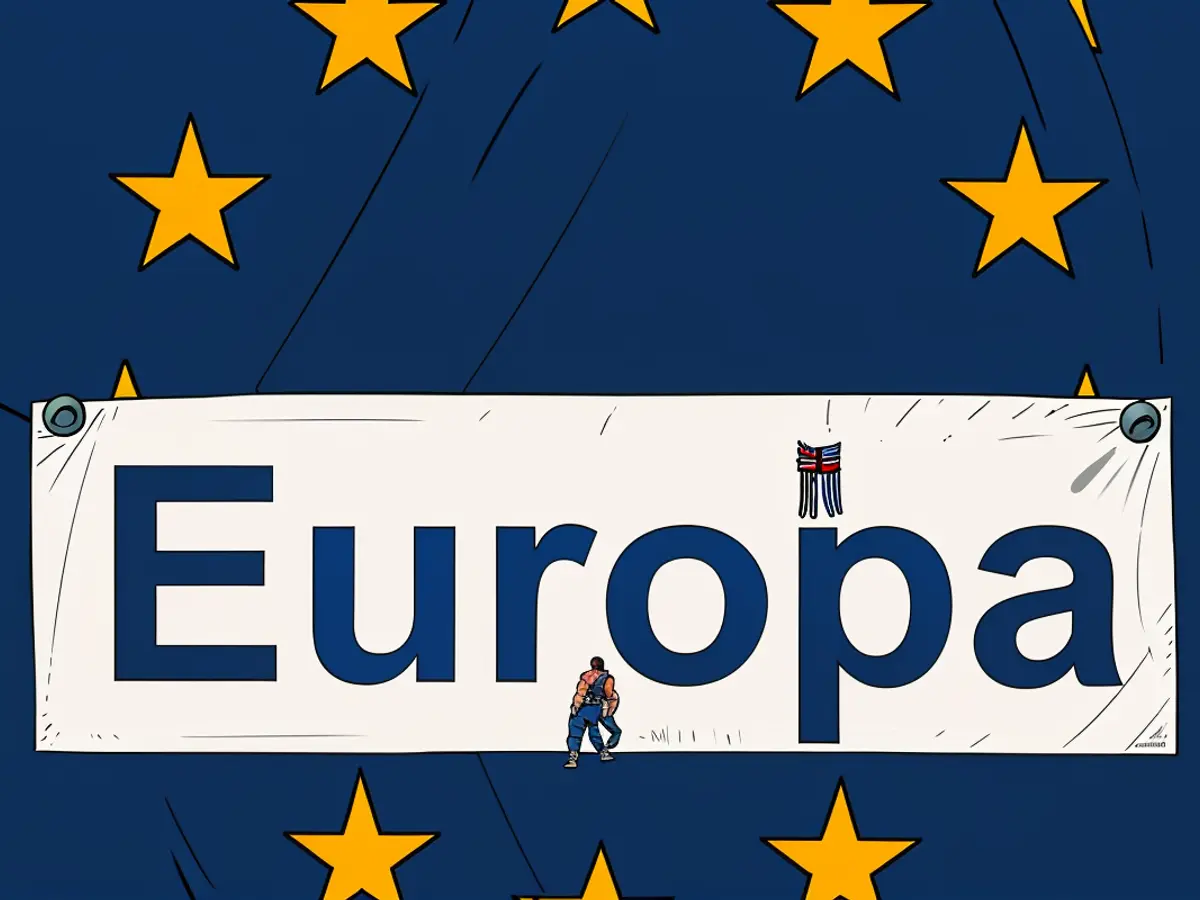Voting Process - European polls in North Rhine-Westphalia conclude uneventfully.
In the most populous state of North Rhine-Westphalia, Europe's biggest election has concluded without any major hiccups. According to the state election board, shortly after the polling stations shut at 6 p.m., there were no unexpected occurrences. They're now in the process of counting the votes, and the initial official results are anticipated on Monday morning.
By 2 p.m. on Sunday, roughly 45% of eligible voters in eight selected districts and municipalities had cast their ballots, according to State Election Commissioner Monika Wißmann. Compared to the last European election in 2019, voter turnout in these eight areas has increased slightly.
At 12 p.m. that day, voter turnout in the aforementioned districts stood around 29%. A survey was conducted in Düren, within the Rhein-Kreis Neuss and Gütersloh districts as well as in Düsseldorf, Duisburg, Essen, Cologne, and Mülheim an der Ruhr.
In 2019, voter turnout in the entire state of North Rhine-Westphalia, along with the nation as a whole, was 61.4%. This was an improvement over 2014 when just around half of eligible voters in North Rhine-Westphalia (52.3%) cast their votes. Approximately 13.8 million citizens were eligible to vote in North Rhine-Westphalia.
Despite some small issues, like in Essen, where helpers reportedly didn't make it to the ballot box on Sunday morning because it was located in a locked room nobody had a key for, the situation was quickly rectified. The head of Essen's election office confirmed that the ballot box was delivered with associated materials to facilitate voting at 8:06 a.m. Voting rooms were opened as scheduled, and no voters were turned away. "Everyone was patient," the official said.
In Bottrop, a kindergarten's voting location had to be relocated to the lobby because it was vandalized overnight. The ongoing forensic investigation prevented access to the initial designated rooms until Sunday afternoon.
Wüst: North Rhine-Westphalia gains significantly from the EU
Minister President Hendrik Wüst (CDU) cast his ballot alongside his wife in his hometown of Rhede's comprehensive school on Sunday morning. He stressed the significance of the European election and the EU for North Rhine-Westphalia. "We in North Rhine-Westphalia benefit more than any other federal state in Germany from the EU. Thanks to European integration and increasing cooperation between European nations, we've evolved from a marginalized western location to the center of Europe," Wüst remarked.
The CDU politician highlighted the benefits of the EU for North Rhine-Westphalia with numerous job opportunities. Half a million positions are at risk if the European Union faces difficulties. "This European election is more important than ever before for our continent, for the democratic future on this continent. We've had almost eight decades of peace and freedom thanks to European integration, better cooperation between European people," said Wüst.
CDU had the best result in 2019
The North Rhine-Westphalian state assembly urged people and various organizations to participate in the tenth direct election to the European Parliament and exercise their voting rights for democracy in recent weeks. Postal voting has been available for several weeks. In 2019, around 28% of eligible North Rhine-Westphalian voters opted for this method during the European election.
In 2019, the CDU in North Rhine-Westphalia achieved the best result with 27.9%, followed by the Greens (23.2%) and the SPD (19.2%). The AfD earned 8.5% in North Rhine-Westphalia, followed by the FDP (6.7%) and Die Linke (4.2%). 10.3% of the votes went to other parties. The CDU and CSU combined had the best outcome with 28.9% in Germany. Since 1999, the Union has excelled in European elections - this mark was first reached in North Rhine-Westphalia. In previous years, the CDU or SPD would sometimes pull ahead.
Read also:
- The European elections in North Rhine-Westphalia, the EU's most populous state, occurred without significant issues, as confirmed by the state election board.
- Monika Wißmann, the State Election Commissioner, reported that approximately 45% of eligible voters had cast their ballots in eight selected districts and municipalities by 2 p.m.
- Wüst emphasized the importance of the EU for North Rhine-Westphalia, stating that it benefits more than any other German federal state because of European integration and increasing cooperation between European nations.
- In Düsseldorf, Duisburg, Essen, Cologne, and Mülheim an der Ruhr, along with Düren in the Rhein-Kreis Neuss district and Gütersloh, there was an increase in voter turnout compared to the last European election in 2019.
- Despite minor issues, such as a locked ballot box in Essen, the situation was quickly resolved, ensuring no voters were turned away.
- A kindergarten voting location in Bottrop had to be relocated to the lobby because it was vandalized overnight, but voting continued as scheduled after access was granted in the afternoon.
- During the 2019 European elections, the CDU in North Rhine-Westphalia achieved the best result with 27.9%, followed by the Greens and the SPD.
- Hendrik Wüst, the CDU Minister President of North Rhine-Westphalia, urged people and organizations to participate in the European elections and exercise their democratic rights.
- Postal voting has been available for several weeks in the lead-up to the European elections, with around 28% of eligible North Rhine-Westphalian voters opting for this method during the 2019 election.








